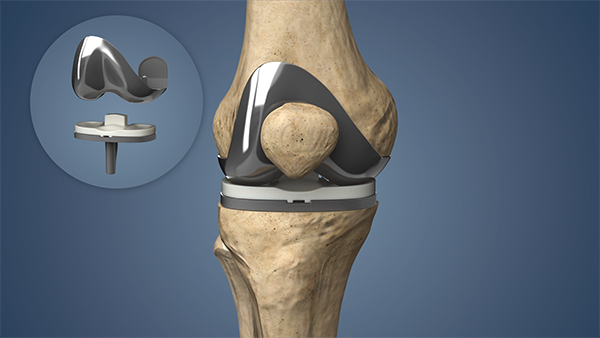
Knee replacement
Knee Replacement Surgery (arthroplasty) is a routine operation that involves resurfacing a damaged, worn or diseased cartilage of the knee with an artificial surface.
This surgery is actually a knee resurfacing surgery which is commonly referred as knee replacement surgery but the whole joint is not replaced in this surgery only the damaged part is resurface. Adults of any age can be considered for a knee replacement, an average mostly are carried out on people between the ages of 60 and 80 years. More people are now receiving this operation at a younger age. A resurfaced Knee usually lasts over 20 years.
CRITERIA OF KNEE REPLACEMENT?
Knee Replacement Surgery including referral for surgical assessment of osteoarthritis policy is subject to this restricted policy. This includes partial or total knee replacements with or without a patellar resurfacing. Funding approval for surgical treatment will only be provided by the Surgeon for patients meeting criteria set out below.
1.The patient has been assessed by the OASIS Services as suffering from end-stage osteoarthritis suitable for referral for consideration of surgery
2.The patient has fully engaged with conservative measures for a period of up to 3 months and this has failed to improve the symptoms of the patient.
3.The patient:
a Is suffering from moderate or severe pain with moderate or severe functional impairment.
b Has significant instability of the knee joint with moderate functional impairment,
c Has radiological features of severe disease with moderate functional impairments;
d Has radiological features of moderate disease with moderate functional impairment or instability of the knee joint
4.The patient has severe persistent pain that is causing severe functional impairment which is compromising their mobility to such an extent that they are in immediate danger of losing their independence and joint replacement would relieve this, and conservative management as set out in this policy is contra-indicated.
5.The patient is at risk of destruction of their joint of such severity that delaying surgical correction would increase the technical difficulties of the procedure.
AGE OF PATIENT WHO CAN UNDERGO KNEE REPLACEMENT?
Recommendations for surgery are based on a patient’s pain and disability, not age. Most patients who undergo total knee replacement are age 50 to 80, but orthopaedic surgeons evaluate patients individually. Total knee replacements have been performed successfully at all ages.
WHAT TO EXPECT AFTER KNEE REPLACEMENT SURGERY ?
1. Pain relief
2. Normal limb alignment
3. Improvement in gait
4. Increase in standing time
5. Increase in walking distance
ADVANTAGES OF KNEE REPLACEMENT?
1. Improvement in quality of life
2. Improvement in ejection fraction of heart
3. Improvement in bone density
4. Improvement in attitude towards in life
5. Pain Relief
6. Improved mobility
7. Less bone and soft tissue dissection
8. Faster recovery
9. Smaller incision with less soft tissue dissection; less blood loss
10. Decreased time in the hospital
11. Increased range of overall motion and greater patient satisfaction.



